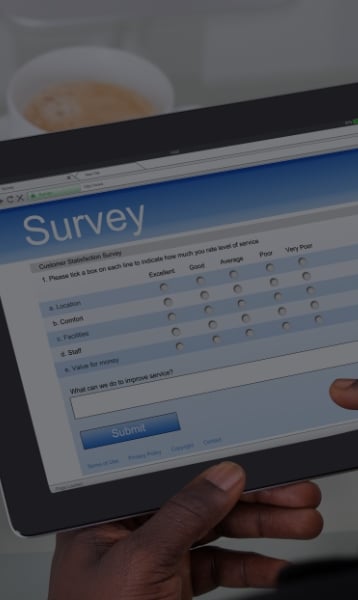The benchmarking portal gives you access to all reports available for STD, LTD, FML & WC.
Redefining Wellness as Part of an Attraction and Retention Strategy


Jennifer Santisi
The COVID-19 pandemic has had a profound impact on the global economy and the way people work. With millions of people losing their jobs or transitioning to remote work, employee retention and attraction have become a critical challenge for businesses of all sizes. Employees are increasingly prioritizing their health and wellbeing—necessitating employers to rethink the definition of “wellbeing.”
High rates of turnover lead to loss in productivity, reduced morale, increases in training and development costs, and higher workloads on remaining staff leading to burnout, IBI Researcher Dr. Sera-Leigh Ghouralal shared during a webinar on IBI’s latest research. Employer strategies require a more holistic and personalized approach to talent management.
Starting in 2021, the voluntary quit rate was over 30% more compared to pre-pandemic levels, and 51 million Americans left their jobs in 2022. Recent surveys of employees highlight that 89% feel burned out and unsupported, 87% want workplace wellness, and 80% prioritize mental health benefits.
“Employers need to focus on redefining wellness. It’s broader than just the physical, it’s not just diet and exercise,” said the head of benefits for a large US federal agency. Employers need to “meet their population’s needs and understand what those needs are.”
With the federal agency’s employee population, there are long tenured employees who have been with the company for 50 or more years, along with recent hires and post-doctoral students, she explained. It’s important to consider the differences in their needs and what’s important to each of them.
The head of benefits highlighted some innovative strategies that the agency is employing, namely making it an exciting workspace and a place where people want to be. There are regular presentations on research projects hosted by researchers. They’ve hosted ice cream socials, dance parties, tour days, and take your child to work days.
“I applaud the effort to include family,” said IBI President Kelly McDevitt. She highlighted that part of the dissatisfaction employees have with returning to the office is that they feel a disconnectedness with family.
In redefining wellbeing, the head of benefits said they’re trying to think outside the box about the workspace itself. There’s currently a project to renovate underutilized space and turn it into a wellness area where staff have access to yoga mats, art space, massage chairs, and a sensory deprivation room. She points to data showing that access to these types of spaces can reduce employee’s stress levels by over 60%.
It’s important to ensure employees are aware, educated, and connected to benefit programs. “It’s all about communication,” the head of benefits said. “The team here at [the agency] does more communication than I’ve seen anywhere else. We make sure it’s streamlined and impactful, and we’re not flooding [staff].” It’s helpful to target communication to certain demographic groups.
“If employees know you care and you’re listening, you’ll increase their participation and engagement,” she emphasized. She said they use Slack as a platform to connect. “It’s a 360-degree dialogue, and it’s very interactive.” Employees have created hundreds of channels on various topics, and they feel it’s a safe space to discuss sensitive topics, including conversations around mental health and medication management.
Establishing a culture of trust, respect, equity, and transparency is critical to success. The head of benefits highlighted that the agency recently redid their value statement and pared it down to 3 values: bold, inclusive, and trusted. These are values that employers must focus on in order to ensure that their attraction and retention strategy is successful in the long run.
- February 2025 (1)
- December 2024 (2)
- March 2024 (1)
- January 2024 (1)
- October 2023 (3)
- September 2023 (1)
- July 2023 (1)
- May 2023 (1)
- April 2023 (1)
- February 2023 (1)
- January 2023 (1)
- December 2022 (1)
- November 2022 (1)
- October 2022 (1)
- September 2022 (1)
- August 2022 (2)
- July 2022 (1)
- June 2022 (3)
- May 2022 (2)
- April 2022 (1)
- March 2022 (2)
- February 2022 (1)
- January 2022 (1)
- December 2021 (1)
- November 2021 (1)
- October 2021 (1)
- August 2021 (1)
- July 2021 (2)
- June 2021 (1)
- May 2021 (1)
- April 2021 (1)
- February 2021 (1)
- January 2021 (3)
- August 2020 (1)
- July 2020 (3)
- May 2020 (1)
- April 2020 (4)
- March 2020 (4)
- February 2020 (1)
- January 2020 (1)
- November 2019 (2)
- July 2019 (4)
- June 2019 (3)
- May 2019 (2)
- April 2019 (2)
- March 2019 (3)
- February 2019 (7)
- January 2019 (9)
- November 2018 (6)
- October 2018 (3)
- September 2018 (3)
- August 2018 (2)
- July 2018 (4)
- March 2018 (22)
- February 2018 (1)
- October 2017 (1)
- September 2017 (1)
- August 2017 (1)
- July 2017 (1)
- June 2017 (3)
- May 2017 (2)
- April 2017 (1)
- March 2017 (29)
- February 2017 (1)
- January 2017 (1)
- December 2016 (3)
- November 2016 (2)
- October 2016 (1)
- August 2016 (3)
- May 2016 (2)
- April 2016 (8)
- February 2016 (29)
- January 2016 (1)
- December 2015 (2)
- July 2015 (4)
- June 2015 (6)
- May 2015 (1)
- April 2015 (1)
- March 2015 (22)
- February 2015 (1)
- January 2015 (1)
- December 2014 (1)
- November 2014 (1)
- October 2014 (2)
- September 2014 (1)
- August 2014 (3)
- July 2014 (2)
- June 2014 (1)
- May 2014 (2)
- April 2014 (4)
- March 2014 (8)
- February 2014 (1)
- January 2014 (1)
- December 2013 (2)
- November 2013 (2)
- October 2013 (4)
- August 2013 (1)
- July 2013 (3)
- May 2013 (13)
- March 2013 (2)
- February 2013 (9)
- January 2013 (1)
- December 2012 (1)
- November 2012 (1)
- June 2012 (1)
- May 2012 (1)
- April 2012 (1)
- August 2011 (1)
- June 2011 (3)
- May 2011 (1)
- April 2011 (2)
- March 2011 (1)
- February 2011 (2)
- November 2010 (1)
- October 2010 (1)
- June 2010 (1)
- March 2010 (1)
- January 2010 (2)
- October 2009 (1)
- July 2009 (1)
- May 2009 (2)
- March 2009 (1)
- January 2009 (1)
- November 2008 (1)
- October 2008 (2)
- September 2008 (1)
- August 2008 (1)
- June 2008 (1)
- May 2008 (1)
- April 2008 (2)
- March 2008 (1)
- February 2008 (1)
- January 2008 (2)
- December 2007 (1)
- November 2007 (1)
- October 2007 (1)
- September 2007 (1)
- August 2007 (1)
- July 2007 (1)
- June 2007 (1)
- May 2007 (2)
- March 2007 (1)
- February 2007 (1)
- January 2007 (1)
- August 2006 (1)
- June 2006 (1)
- March 2006 (1)
- May 2005 (1)
- July 2004 (1)
- 2019 (1)
- 2020 (1)
- Absence (2)
- Absence Management (4)
- Article (105)
- Behavioral Health (2)
- Benchmarking (9)
- Benefit Design (11)
- Benefits + Plan Design (26)
- Blog (72)
- Burnout (1)
- Business Performance (2)
- Business Value of Health (21)
- Cancer (3)
- Cardiovascular Disease (4)
- Care Management (1)
- Care Quality (1)
- Caregiving (3)
- Case Studies (7)
- Chronic Conditions (2)
- Communicating H&P to Business Leaders (1)
- Community Health (2)
- Comparative Effectiveness Research (1)
- Connecting HR to Operations (1)
- COVID-19 (13)
- Culture of Health (1)
- Culture of Health + Safety (29)
- Data (1)
- Data Driven Decision Making (1)
- Depression (5)
- Diabetes (5)
- Disability Leave (41)
- Disease Burden (1)
- Employer Perspectives (5)
- Engage Employees (45)
- Event Recap (2)
- Exchanges (4)
- Family + Parental Leave (8)
- FMLA (2)
- Headache (1)
- Health + Productivity Management (54)
- Health Inequities (1)
- Healthcare (2)
- Healthcare Costs (17)
- HPM Survey (3)
- IBI Agenda (2)
- IBI Presents (9)
- immunization (1)
- Industry Profile (1)
- Integrating Health Data (12)
- Invest In Health (52)
- Leave Benchmark Survey (1)
- Linking Health to Business Performance (1)
- Make The Business Case (54)
- Manage Absence (70)
- Market Perspectives (29)
- Maternity (1)
- Measurement (2)
- Measuring Outcomes (21)
- Medication Adherence (1)
- Mental + Emotional Health (16)
- Mental Health (7)
- Migraine (2)
- MSD (1)
- MSK (1)
- Multi-Study Spotlight (23)
- Musc (1)
- Musculoskeletal Disorders (12)
- National Forum (1)
- Obesity (2)
- Occupation (1)
- Online Events (17)
- Pain Management (1)
- Patient Resources (1)
- Patient-Centered (2)
- Pharmacy (5)
- Physical Activity (1)
- Popular and Timely (11)
- Practical Guidance (6)
- Pregnancy (1)
- Presenteeism (1)
- Presenteeism / Job Performance (3)
- Preventive Care (1)
- Previous Forums (109)
- Productivity (46)
- Provider Quality (1)
- Regional Events (1)
- Research (22)
- Research Based Healthcare Evidence (1)
- Research Report (2)
- Research Review (3)
- Return to Work (19)
- Risk Management (11)
- SAW / RTW (1)
- Scholarly Work (2)
- Short-Term Disability (2)
- Sick Leave (15)
- Social Determinants of Health (1)
- Stay at Work (1)
- Stay-at-work / Return-to-work (1)
- STD (2)
- Strategies (1)
- Stress (2)
- Suicide (2)
- Surveys (3)
- Talking to Leadership (4)
- Telehealth (3)
- Understand Health Risks (34)
- Value-based Benefit Design (1)
- Vendor Integration (1)
- Video (3)
- virtual care (1)
- virtual health (1)
- Weight Control (5)
- Well-being (16)
- Wellness + Lifestyle (17)
- Working Remotely (4)
- Workplace Culture of Health (2)
- Workplace Health Programs (1)
- Admin
- Brian Gifford
- Brian Gifford Ph.D. Director, Research and Analytics, IBI
- Candace Nelson
- Carole Bonner
- Carolyn Ho
- Carolyn Ho, IBI Communications Lead
- Erin Peterson
- Erin Peterson, Researcher
- Gia Harris
- IBI
- IBI Member
- IBI Research Team
- Integrated Benefits Institute
- Jennifer Santisi
- Jim Huffman
- Kelly McDevitt, IBI President
- Marshall Riddle
- Nicole Nicksic, PhD, MPH Research Lead
- Sera-Leigh Ghouralal
- Thomas Parry, PhD Senior Advisor, Integrated Benefits Institute





















.png?width=900&name=Copy%20of%202024%20Research%20Priorities%20Banner(5).png)

